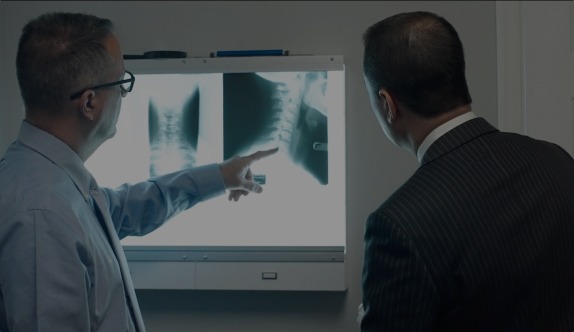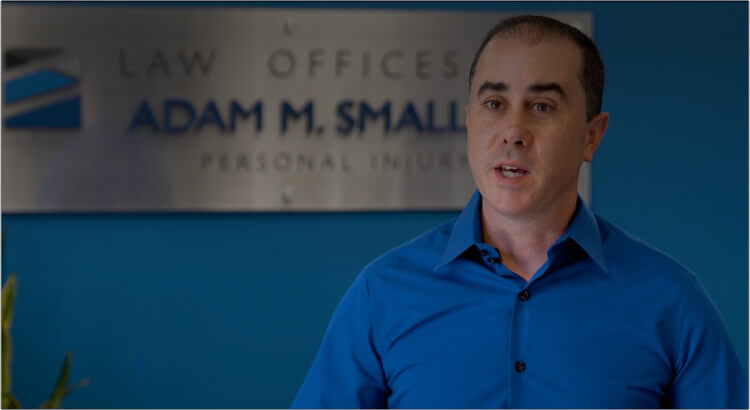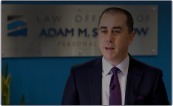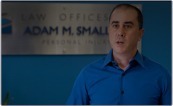If you have been injured in an accident caused by another party’s negligence in Pleasant Hills, Maryland, our team may be able to pursue compensation on your behalf.
Adam Smallow Injury Lawyers understands that accidents like these can have lasting impacts on victims and their families. When a Pleasant Hills personal injury lawyer from our firm represents you, we can handle all legal work in your case so you can focus on healing.
If you would like a free consultation with a member of our team, call us today. We can handle your case on a contingency-fee basis, where you pay nothing upfront and do not owe us attorney fees unless and until we help you recover compensation in a settlement offer or court award.
Let Adam Smallow Injury Lawyers fight for your recovery. Contact us today.
FREE CASE EVALUATIONHow Our Pleasant Hills Personal Injury Lawyers Prove Negligence
Personal injury lawsuits in Maryland are generally based on negligence—that is, the idea that the other party’s failure led to your injuries. Whether your injuries occurred in a slip and fall accident, a car accident, or due to a medical provider’s failure to uphold their industry’s standard of care, proving the responsible party’s negligence may allow you to recover compensation for your damages.
As in other states, there are several elements that go into establishing negligence, but they boil down to this: you typically must prove that the defendant failed in their “duty of care,” and this failure caused you physical or financial injury.
Duty of Care
The first element of negligence a plaintiff must establish is that the defendant owed them a duty of care—in other words, that they had a responsibility to act with reasonable care when in a situation that could potentially cause harm. A common example would be a store owner who has mopped a floor and knows that people could potentially slip and fall while it is still wet. Reasonable care may warrant placing signs warning shoppers of the risk.
Breach of Duty
Having established the defendant’s duty of care, the next element is proving that they failed in that duty. To continue our example, the store owner failed to put up a sign warning shoppers of the wet floor.
Cause of Harm
After demonstrating that the defendant had an obligation to act responsibly and failed to do so, the plaintiff must then show that this failure led to their injuries. In our example, a shopper would have to prove that they slipped on the wet floor, injuring themselves.
Damages
Finally, after showing that the defendant’s breach of care led to injuries, the plaintiff has to establish that these injuries led to a financial loss. To finish our example, the shopper would have to show that the injuries they sustained cost them medical expenses, time out of work, and/or less tangible things like pain and suffering.
A Pleasant Hills personal injury attorney from Adam Smallow can gather evidence to demonstrate these elements in your case when we represent you. To discuss your case for free with a member of our team, call us today.
We Can Help with All Types of Injuries in Pleasant Hills
No matter how your injuries happened, our team is here to help. Our law firm consists of experienced attorneys in a variety of personal injury practice areas:
- Pleasant Hills truck accident lawyers: Our team is experienced in handling cases involving negligent trucking companies, unsafe loading practices, or driver fatigue.
- Pleasant Hills car accident lawyers: Whether your accident involved a distracted driver, a rear-end collision, or a drunk driver, our car accident lawyers can fight for the compensation you need.
- Pleasant Hills motorcycle accident lawyers: Motorcyclists face unique risks on the road, and accidents often result in serious injuries. We are committed to holding negligent drivers accountable.
- Pleasant Hills boating accident lawyers: Accidents on the water, whether due to reckless operation, intoxication, or poor maintenance, can be life-altering. Let us advocate for your recovery.
- Pleasant Hills bicycle accident lawyers: Cyclists often suffer devastating injuries in collisions with vehicles. Our lawyers are skilled at proving liability and pursuing maximum compensation.
- Pleasant Hills premises liability lawyers: If you were injured due to unsafe conditions on someone else’s property, such as a slip and fall or inadequate security, we can help hold the property owner responsible.
- Pleasant Hills slip and fall lawyers: A simple slip and fall can lead to serious injuries, from broken bones to traumatic brain injuries. Let us help you manage your case.
- Pleasant Hills medical malpractice lawyers: When healthcare providers fail to meet the standard of care, the consequences can be life-altering. We can handle cases involving surgical errors, misdiagnoses, or medication mistakes.
- Pleasant Hills nursing home abuse lawyers: Our team is dedicated to protecting the rights of nursing home residents and holding negligent facilities accountable for abuse, neglect, or poor living conditions.
- Pleasant Hills wrongful death lawyers: Losing a loved one due to someone else’s negligence is devastating. Our compassionate attorneys can pursue justice and compensation on behalf of your family.
No matter the nature of your injuries, Adam Smallow has the knowledge and resources to fight for the compensation you deserve.
Get on the road to recovery with competent legal representation and high-quality medical professionals. Contact our Pleasant Hills personal injury lawyer today.
START YOUR CASERecoverable Damages in a Personal Injury Case
The recoverable damages available in a personal injury case or lawsuit depend on the nature of the accident, the injuries the victim experiences, and other factors. In general, these damages may include:
- All medical costs, both current and future
- Lost wages
- Reduced earning capability
- Property damage
- Pain and suffering
An alternate set of damages may be available in a wrongful death case.
If you need legal representation, schedule your Road to Recovery Consultation.
START YOUR CASEOur Pleasant Hills Personal Injury Attorneys Manage All Deadlines for You
According to Maryland Courts and Judicial Proceedings § 5–101, personal injury lawsuits in Maryland generally must be filed within three years of the date of the accident. When it comes to medical malpractice lawsuits, the deadline is generally three years from when the injuries are discovered or five years from when the injuries occurred, whichever comes first, per Maryland Courts and Judicial Proceedings § 5–109.
If you allow the statute of limitations to expire in your case before taking legal action, it could mean that your lawsuit gets dismissed.
What to do After an Injury: A Step-by-Step Guide
Experiencing an injury can be overwhelming, but taking the right steps immediately afterward can protect your health and legal rights. Here’s what you should do:
- Prioritize Your Health: Seek medical attention right away, even if your injuries seem minor. Some conditions, like internal injuries or concussions, may not be immediately apparent. Keep detailed records of all medical visits, treatments, and prescriptions.
- Document the Scene: If possible, take photos or videos of the accident scene, your injuries, and any contributing factors, such as a wet floor or damaged vehicle. These visuals can serve as crucial evidence later.
- Report the Incident: Notify the appropriate parties. For car accidents, file a police report. For workplace injuries, inform your employer. If the injury occurred on someone’s property, report it to the property owner or manager.
- Gather Information: Collect contact information from witnesses and other involved parties. Document their accounts of what happened.
- Avoid Discussing Fault: Refrain from admitting fault or making detailed statements without legal guidance. Anything you say could be used against you.
- Consult a Lawyer: Speak with a personal injury attorney as soon as possible to understand your rights and options. They can guide you through the process of seeking compensation and dealing with insurance companies.
Taking these steps can help ensure your recovery and protect your claim for justice.
If you think you may have a case, call us today.
Free Consultation (410)777-8960Give Adam Smallow Injury Lawyers a Call Today
A Pleasant Hills personal injury lawyer from our team can handle all aspects of your case when we represent you. Let our team roll up their sleeves and fight for your compensation while you focus on healing.
Call today for your free consultation with a member of our team. We can discuss your accident, your legal options, and our services during this call.
Take the first step towards justice. Contact Adam Smallow Injury Lawyers
FREE CASE EVALUATION





